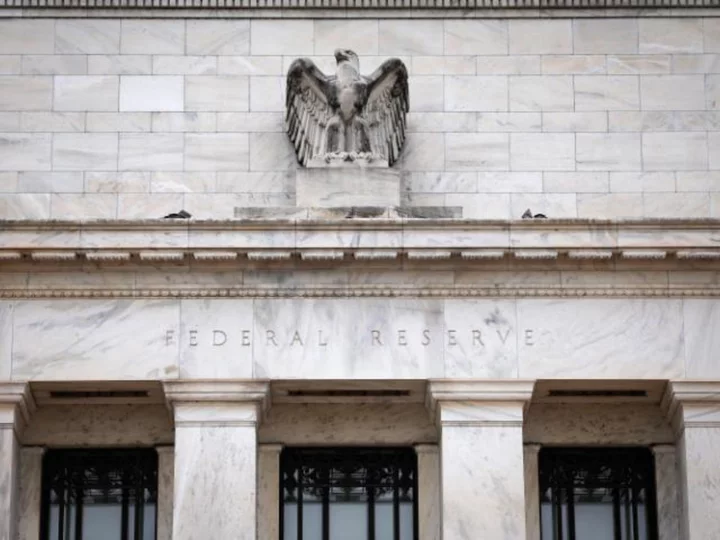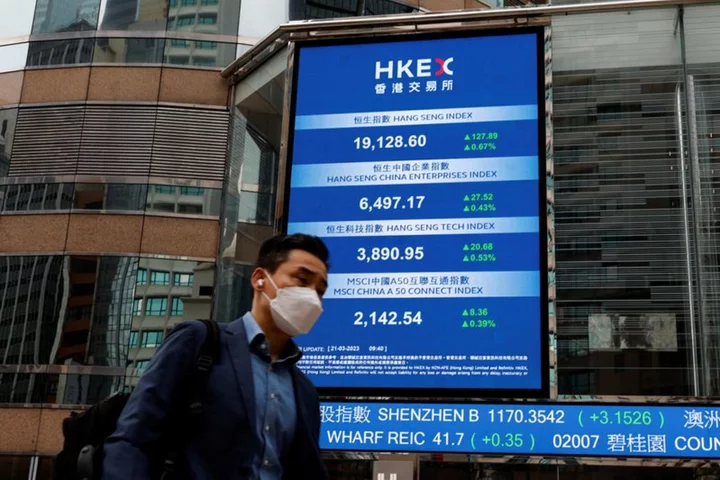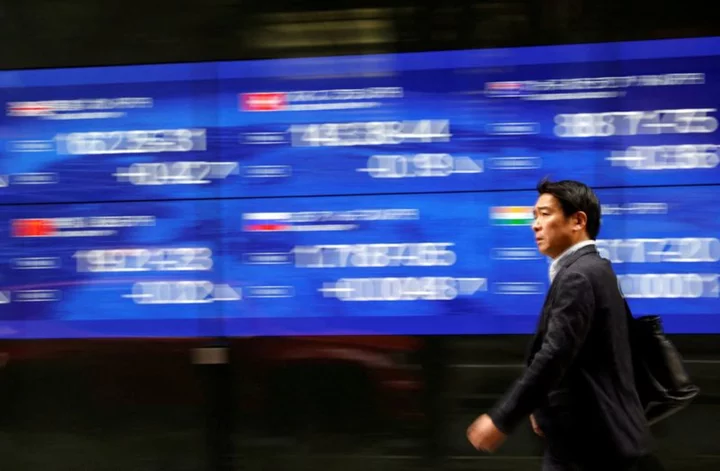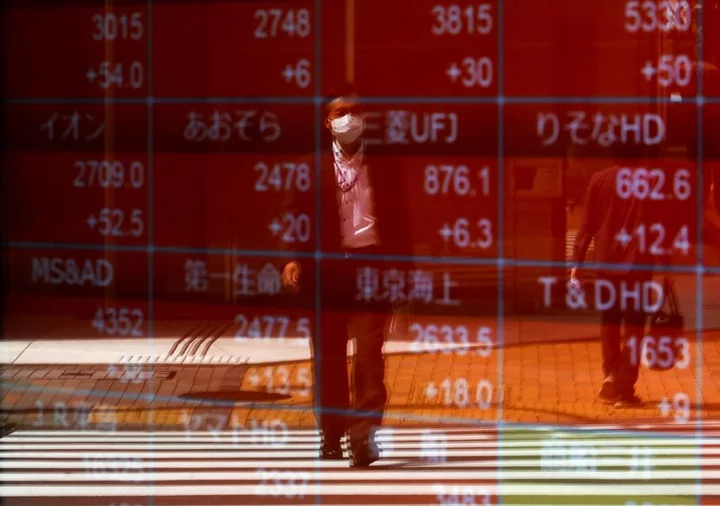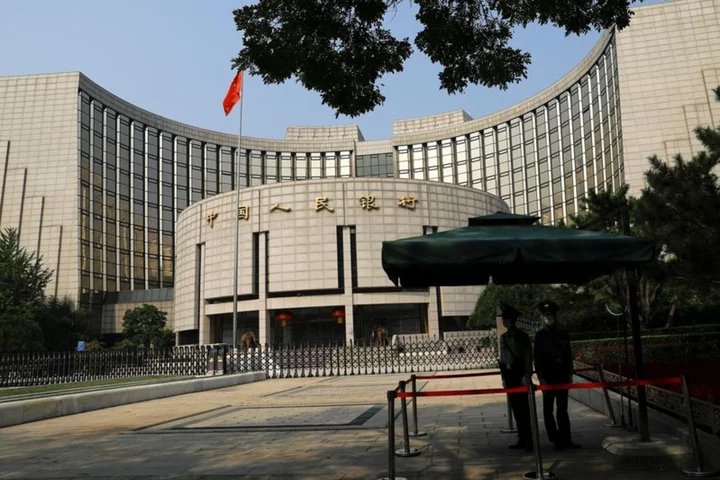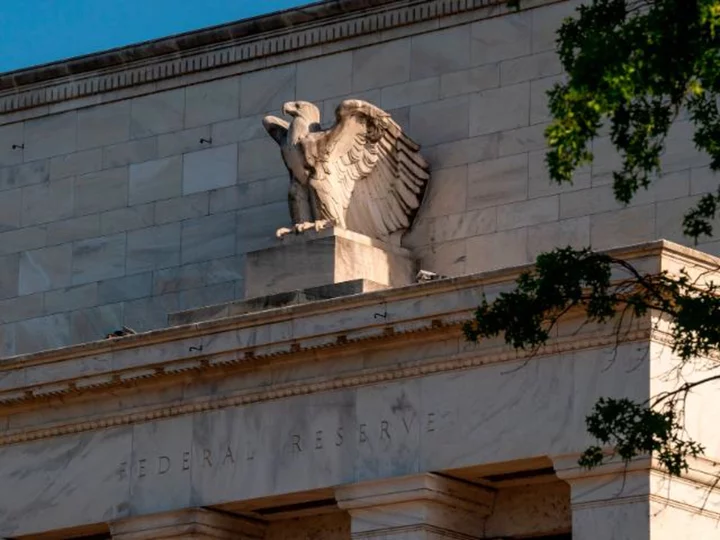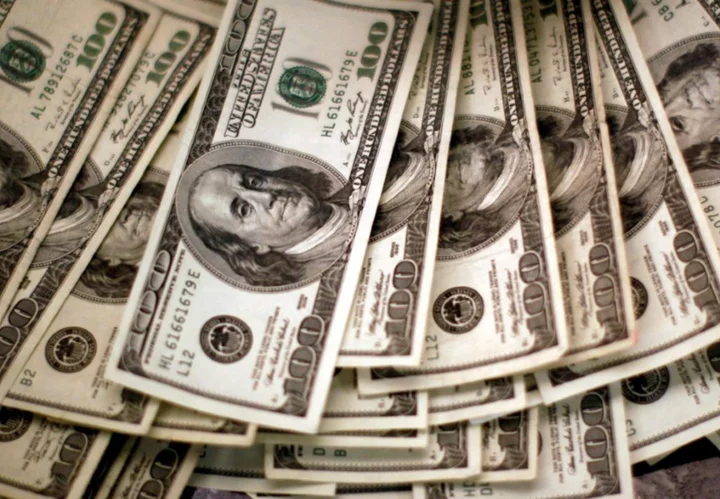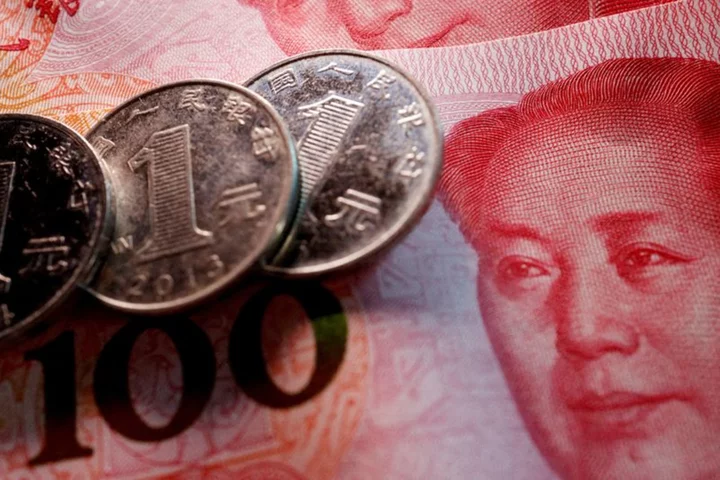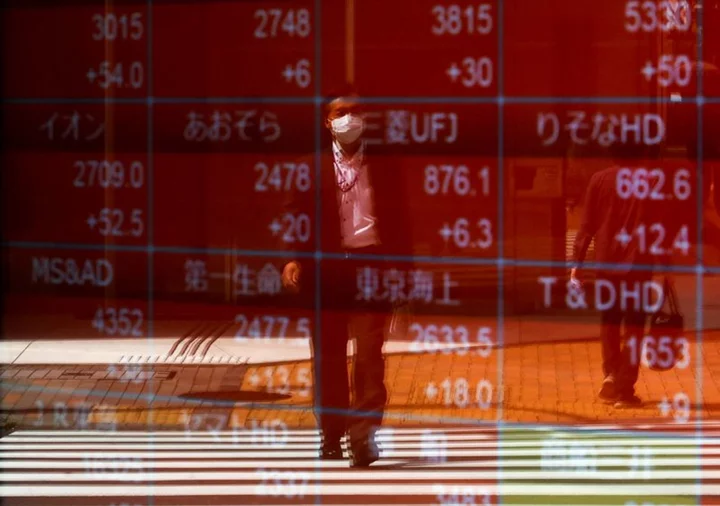The strength and resiliency of the US economy during the first half of the year defied the expectations of economists who largely expected the country to fall into recession.
Still, many expect the second half of the year to bring some volatility as Federal Reserve policymakers indicate they plan to continue making painful interest rate hikes.
While inflation rates are slowly falling, price pressures persist, and the Fed has hinted that its benchmark interest rates will stay higher for longer.
Banks also look set to continue tightening lending standards in the second half of the year. That will make it more difficult and costly for small and midsize businesses (and US households) to secure funding.
Corporate bankruptcies are on the rise and so are consumer debt delinquencies. Delinquencies rose across all "days past due" categories on a year-over-year basis, jumping from 0.16% of loans in May 2022 to 0.25% in May 2023, according to the latest monthly CreditGauge analysis from VantageScore.
So are we entering a credit crunch? Before the Bell spoke with David Tesher, the regional credit conditions chair at S&P Global and Chiza Vitta, a senior analyst with S&P Global, to find out.
Before the Bell: Economic data is softening a bit, but the consumer is still strong. Is a recession still imminent?
David Tesher: Before we were forecasting a short and shallow recession, but we no longer think there's going to be a recession. Now, it's a situation where growth prospects are slower, but we're not predicting imminent recession.
The US consumer has been resilient, but obviously, persistent inflation is definitely eroding their purchasing power. Less wealthy consumers are definitely feeling a lot more pressure, they're using more credit card debt. Households are bleeding through the cash pile that they had accumulated during the pandemic. Hard decisions are being made, and that's going to feed back into corporate growth prospects.
As economic conditions slow, credit is becoming tighter and companies are defaulting at a faster pace than they have. Is a credit crunch coming?
Chiza Vitta: There isn't a broad downturn across the market, but there's a lot of risk for less established companies. So yes, some corporations are distressed, but this isn't something affecting the entire market, which is what you'd associate with a broad credit crunch.
Which sectors will hurt the most?
Vitta: When it comes to ratings, the size of the company is a major factor. Sectors like tech and energy, where there's a lot of profitability, are in good shape. It's going to take a prolonged period of distress for them to get to a point where they are downgraded, let alone face a default. We're not expecting something like that. Generally speaking, it's deeply speculative companies where you're seeing interest rates as much as double. We would say that public companies may be experiencing slower growth but not a high level of distress.
When people talk about a potential credit crunch, they tend to mention how difficult it is for the commercial real estate sector to find funding. What are you seeing?
Tesher: There's been declining demand for office space, and that's weighing heavily on commercial real estate asset valuation, pressuring cash flows at a time when financing costs have increased. Work from home, the hybrid arrangement, is going to be in place for a while, and lenders are recognizing that some of the appraisals they have in place are stale. It's happening slowly, but banks, and insurance companies, whoever is holding that commercial real estate risk, have to address it. That can end up resulting in more selective funding for commercial industrial projects. So it definitely has an overhang to it. You're seeing property sell, and you're seeing reevaluation based on lower prices being recognized. But it's not all happening at once, it's a looming risk.
Big Tech is back with a vengeance
Last year was rough for tech companies: Tech stocks fell more than 30% in 2022, while the overall market dropped 20%.
But boy, oh boy are they back. Tech giants have pulled markets higher this year, largely thanks to a boost from the artificial intelligence revolution.
On Friday, the tech-heavy Nasdaq composite index notched its best first half gain in 40 years. Apple stock, meanwhile, ended trading Friday valued at $3 trillion, the only company ever to reach that milestone.
It's not just Apple: Nvidia, which makes chips for AI, was up 3.6% on Friday and about 190% so far year to date. Meta was up 1.9% on Friday and more than 138% for the year, and Microsoft gained 1.6% for the day and 42% over the past six months.
It wasn't supposed to be this way.
"Coming into 2023 the sentiment around tech stocks was extremely negative," as the economy appeared headed toward a downturn, said Wedbush's Daniel Ives in a note. Instead, "AI has changed the tech world and investor sentiment with this transformational technology," he added.
Ives forecasts that the tech sector will be up another 12%-15% in the second half of this year.
But not all analysts agree.
Markets sentiment appears to be excessively inflated, said Liz Ann Sonders, chief investment strategist at Charles Schwab. That means stocks will likely become choppy in the near term, she added.
"What we have seen this year is the dangerous pattern when investors let the fear of missing out (aka FOMO) override disciplined due diligence," said Megan Horneman, chief investment officer at Verdence Capital Advisors. "Since AI is associated with technology, the tech heavy Nasdaq has outperformed the Dow Jones Industrial Average by over 25% year to date. In the S&P 500, the companies that are perceived to be advancing AI or directly involved with AI are making up [about] 80% of the S&P 500 total return this year."
Fourth of July road trip, anyone?
The roads will be crowded this Fourth of July weekend, but travelers have at least one thing going for them: much cheaper gas prices than last year, reports my colleague Matt Egan.
A record-setting 43.2 million Americans are expected to travel by car this holiday weekend, according to AAA. That's 2.4% higher than last Fourth of July.
And yet gasoline prices are much lower. The national average for regular gasoline dipped to $3.55 a gallon on Thursday, according to AAA. A year ago, a gallon of regular sold for an average of $4.87 a gallon.
That kind of price drop is almost unprecedented.
During the week ending June 26, the average gas price was $3.57 a gallon, according to the US Energy Information Administration. That's down by $1.30, or 27%, from the same period last year.
This is the second-biggest one-year price drop in the week before the Fourth of July since EIA data began 33 years ago, according to John LaForge, who leads real asset strategy for the Wells Fargo Investment Institute.
The only bigger 12-month drop occurred during a historic downturn: the Great Recession. Gas prices plunged by $1.45 a gallon, or 35%, between June 30, 2008 and June 29, 2009.

